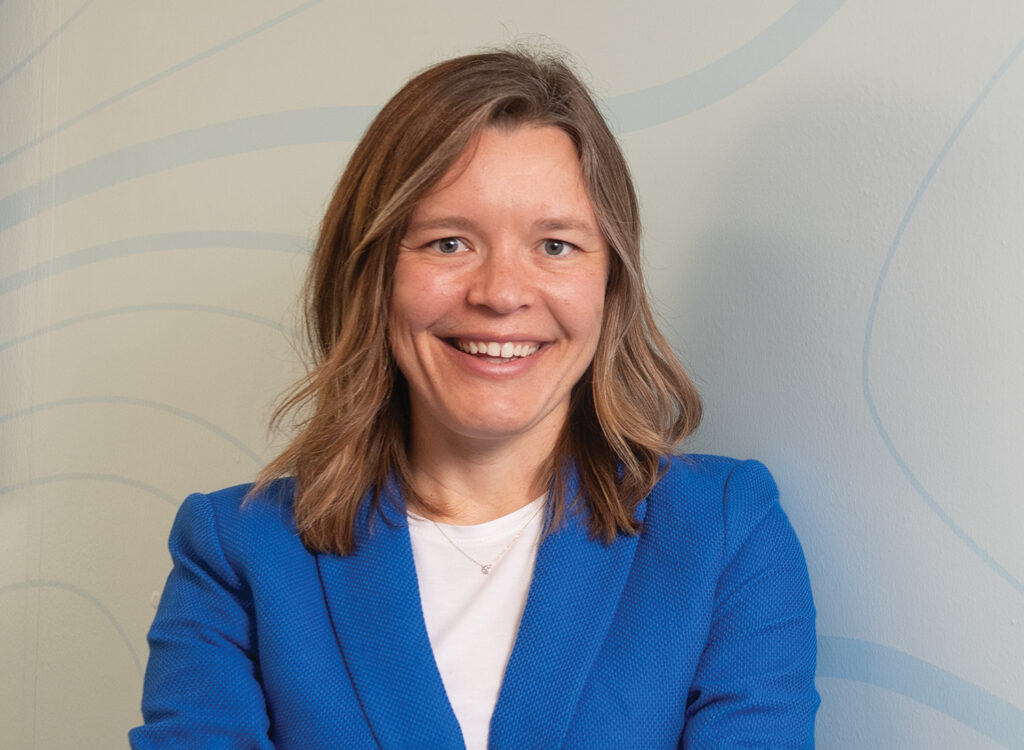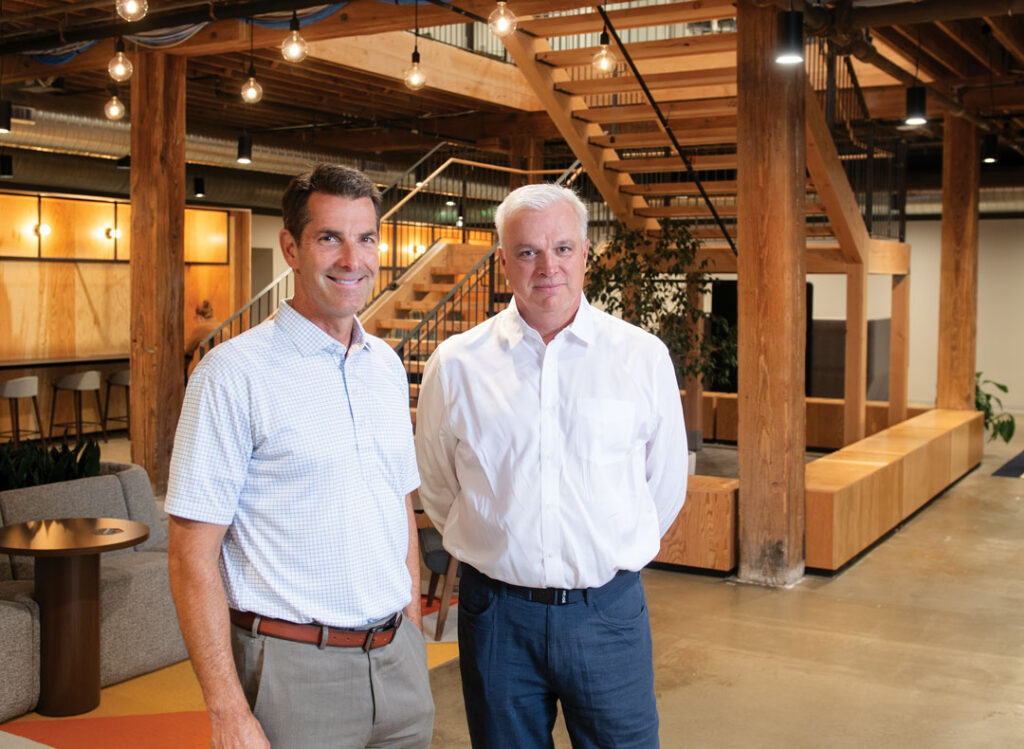A Closer Look: Jeffrey Bruner
Take a closer look at the founder of the Fussy Librarian

Jeffrey Bruner is quite content surrounded by the written word.
After leaving his hometown of Pittsburgh for Drake University, Bruner stayed in Iowa following graduation. He spent a few years working the news desks at the Ames Tribune and another 15 years at the Des Moines Register, shifting between wire editor, copy editor and metro editor.
Bruner founded the Fussy Librarian in 2013, a website and subscription service sorting through thousands of e-books for readers seeking their next binge read. In 2014, he left journalism to work on the Fussy Librarian full time.
Today, Bruner and the Fussy Librarian’s web content coordinator/copy editor, Sadye Scott-Hainchek, manage two newsletters featuring around 15,000 authors and serving around 300,000 readers internationally.
How did the Fussy Librarian come about?
About 10 years ago the [Register] began laying people off, and it only started accelerating. It became obvious that sooner or later it was going to be me, and I decided I needed to start working on a plan B. I decided to start up the Fussy Librarian, and did that at home after work for about a year. … After about 12 months, I felt comfortable enough to cut the cord and go full time with the business [in 2014]. We turned 5 last fall.
There were a few companies in [the industry] when I first noticed it, but really less than five. I thought, OK, this is kind of an emerging space where I could carve out a niche. The big one is called BookBub; they had venture capital financing and so they were able to scale up very quickly. I didn’t have that luxury, I just kept reinvesting. … It’s grown really nicely. We have two newsletters now, about 300,000 subscribers now.
We almost doubled revenue last year, and we’re pretty confident we’re going to double revenue this year. I think we finally found the sweet spot where it’s going to allow us to scale up.
How’d you come up with the name?
Just brainstorming, trying to come up with a catchy adverb-adjective/noun combination.
We’re just wrapping up our first digital ad, and we’re using that as an opportunity to give [the Fussy Librarian logo] a makeover, and she’s much more of a badass now.
End of [January], we’re going to have a local company do the voiceover. … We’re working with Radio Garage out of Urbandale. It’s nice to work with local companies when you can.
What draws you to e-books?
I started out as a writer, so that’s always been a part of me. When I was still in journalism, I was just interested in trying other areas related to writing. I tried to write screenplays for a couple years, and quickly learned that people in the middle of Iowa don’t sell screenplays, but it was fun. I wrote some plays and I got a few actually produced, which was an amazing experience, but it makes absolutely zero money. So I thought, “OK, I’ll try writing something,” because I always wanted to write a novel, so I gave that a try. It’s a lot of fun — it’s an adjacent part of your brain.
I did not do it full time. Somebody who’s a part-time novelist as a hobby — it’s a completely different animal than somebody doing that full time and has to live off of it. Some people are capable of doing one but not the other — I don’t think I could do it every day. That morphed into, what services are in this area that I might be able to tap into?
We’ll probably move into audiobooks eventually, because they’re related. That’s where the biggest growth is going to be over the next couple of years, the audiobook space, the podcasting space.
When did e-books become a mainstream market for readers?
The first Kindle was 2006, 2007, somewhere a couple years earlier. What’s interesting is that Amazon was not first to the space. … Other companies like Sony [were] the earliest to try something, but Amazon was smart enough to say, yeah, this area has a lot of potential. They’re the ones who figured out how to scale it up into this multibillion-dollar industry.
People were seeking this service out. Even when we first started, Amazon probably had a million e-books in its catalog, and it’s only grown exponentially since then. People are searching for ways to help them find stuff that they like, and to save them time. We can do that by offering a free service and using databases to really be specific about what kind of books that they like. One of our newsletters, you can say “police procedurals” or “I like female sleuths,” or someone likes paranormal romance but not romantic comedies.
How does your database work?
Our newsletters let people specify their comfort level as far as language and violence and sex. So people can say, “Yeah, I’m fine with anything,” but there are others who are like, “Well, I really prefer my books without sex.” So they can check that off and the database does all the work.
It increases the trust factor that they have, that you are providing a service. That’s what keeps them coming back. We got the first website and database up and running in about three months. We worked with Global Reach out of Ames.
I’m really grateful that they took us on as a client. I think they were interested because it was something new and different, and an opportunity to do something they hadn’t done before. But going forward, what I found was it’s tough for a startup company to get your phone calls returned by larger companies that can help you grow.
There’s a number of larger players in the Des Moines market who are not willing to help grow the rest of the community, and that’s frustrating. But Global Reach did, and I’ve sent a lot of businesses their way. We’ve got a great relationship. … It would be helpful if more companies kept an open mind about working with startups and considering things like profit-sharing agreements.
You could identify something that has a lot of potential, and maybe it’s going to take a little extra bit of work upfront, but it has potential to pay off handsomely over the next couple of years. Now that we’ve grown and have the money to try new things and approach other partners, that’s what we’re looking to do.
Where are your authors from? Do you have a lot of Iowa authors?
Our customer base is worldwide, both authors and readers. There’s a lot of, say, British authors who want to reach the American market. I think India is going to be the huge growth market in the next couple of years; it’s now the second-largest English-speaking country.
Our bargain newsletter is … probably 85 percent American [readers], 10 percent Canada-Britain, 5 percent everywhere else. For our free newsletter, we’ve had a lot of growth in the international market. I would say that is probably about 70 percent U.S., 30 percent everywhere else.
What are your goals for the next year?
I hope to add another full-time employee this year.
We’re going to double revenue, we’re going to expand the number of revenue streams that we have. Diversify more, we’re going to increase partnerships with other companies that offer [adjacent] services to authors. Definitely, hiring another person will be a big help.
What are you reading/watching/listening to right now?
“The Automatic Customer” [by John Warrillow]. It’s 2 or 3 years old by now, but it’s a really good book, very easy to read in terms of the subscription economy, and getting you to think about ways … that might work for your individual business. “Hooked” [by Nir Eyal] is about how to create a company that inspires intense loyalty. I think customer service and creating brand loyalty is probably more than half the battle. You don’t have to have the cheapest widget, but you better have good customer service.
I’m a podcast junkie, mainly politics, but there’s a lot of great journalism being done. “Sold in America” came out last year — incredible work on … human trafficking, and a broader look at the business of sex in America. It’s not as dark as it sounds — it’s really enlightening.
Is there something you’ve ever read that you would not recommend to people?
I did start a couple pages of “Twilight,” and that was 15 minutes of my life I’ll never get back.








